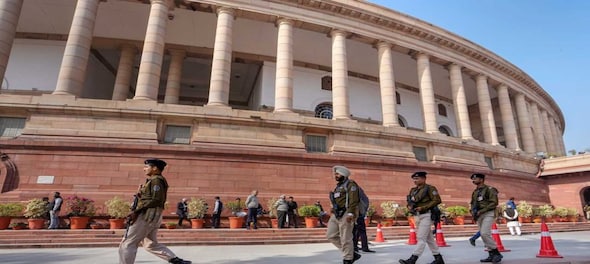
The bill to amend the Registration of Births and Deaths Act 1969 mandates the use of an Aadhaar number for getting these certificates. The Government on Wednesday, July 26, tabled the Registration of Births and Deaths (Amendment) Bill in Lok Sabha in the ongoing session of the Parliament.
The amendment bill proposes Aadhaar, which serves as a unique identification number, will become necessary for registering births and deaths. This change aims to make the registration process digital and more convenient for citizens.
What does the Registration of Births and Deaths Act, 1969, say?
The existing Registration of Births and Deaths Act of 1969, pertains to registering births and deaths in the country. The Act requires births and deaths to be registered and lays out instructions for the registration process. It also describes the functions of registrars and sub-registrars who are in charge of keeping birth and death records at various administrative levels. The objective is to retain thorough birth and death records for statistical purposes.
What is the proposed Amendment?
The proposed amendment seeks to modernise the registration process for birth and death certificates in order to keep up with societal and technical advances. The development of national and state-level databases for recorded births and deaths is a key part of the proposed amendments. This will aid in updating the other databases.
The birth certificate will become the official document of a person's date and place of birth under the new legislation. Individuals born on or after the start date of the Registration of Births and Deaths (Amendment) Act, 2023, would be issued certificates as per the amendments. The certificate will be required for a variety of purposes, including school admissions, obtaining a driving licence, enrolment in the voter's list, marriage registration, government employment, passport issuance, and obtaining an Aadhaar number.
The bill also addresses the registration process for adopted, orphaned, abandoned, surrendered, or surrogate children and those with single parents or unmarried mothers.
As part of the new mandate, all medical institutions must provide cause of death certificates to the Registrar, with a copy given to the closest relative.
The bill will establish a national database of registered births and deaths maintained by the Registrar General. Chief Registrars at the state level and Registrars at the local level will have to share data with the national database. The Chief Registrar will also maintain a similar database at the state level. The Registrar-General of India will be known as the Registrar General of India, according to the bill.
What changes are expected after the amendment?
If the bill is passed, the database will be used to update the National Population Register (NPR), which is the first step towards creating the National Register of Citizens (NRC). The data will also be used to update other databases such as electoral registers, Aadhaar, ration cards, passports, and driving license databases.
Concerns raised by activists
Changing 50-year-old legislation in this manner would transform a basic administrative exercise into a population-control device that might be used against citizens, according to activists. Furthermore, combining multiple databases and utilising Aadhaar might result in privacy issues, and such concerns have already been addressed in court, with the Supreme Court recognising citizens' right to privacy.
(Edited by : Sudarsanan Mani)
First Published: Jul 31, 2023 11:31 AM IST
Check out our in-depth Market Coverage, Business News & get real-time Stock Market Updates on CNBC-TV18. Also, Watch our channels CNBC-TV18, CNBC Awaaz and CNBC Bajar Live on-the-go!


Kannauj Lok Sabha elections: Can ex-UP CM Akhilesh Yadav reclaim this erstwhile SP bastion?
May 12, 2024 11:32 PM
Khunti Lok Sabha Elections 2024: Arjun Munda and Kali Charan to lock horns in this clash of tribal leaders
May 12, 2024 8:59 PM
Malkajgiri Lok Sabha election: A three-way contest among turncoats
May 12, 2024 8:45 PM

